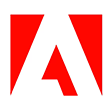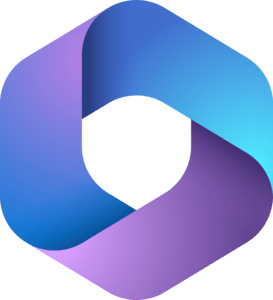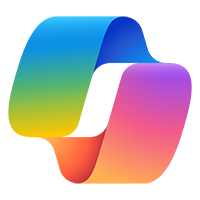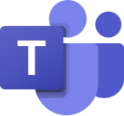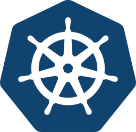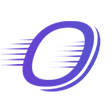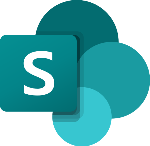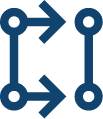The adoption of cloud computing is on the rise as businesses today are moving their applications from on-premise data centers to the cloud in a bid to innovate, reduce costs, and boost agility.
According to Gartner, the IaaS market is estimated to be worth a total of $64.3 billion in 2021, up from $50.4 billion in 2020.
The concerns over security and data sovereignty have been resolved by the prominent public cloud vendors- Amazon Web Services (AWS), Microsoft Azure, and Google Cloud Platform. They differ from each other in terms of services they offer, compatibility with specific business models, budget, company sizes, and so on.
To help you select the right cloud computing platform, here are detailed features, pros, cons, and comparison of the top 3 business cloud services, AWS, Azure, and GCP. Use the menu below to see your desired comparison:
- AWS vs Azure vs Google Comparison Table
- Cloud Provider Overview
- Market Share
- Storage Comparison
- Tool Comparison
- Computation Comparison
- Pricing Comparison
- Selecting a Cloud Provider
AWS vs Azure vs Google Comparison Table
| THE BASIS OF COMPARISON | AWS | MICROSOFT AZURE | GOOGLE CLOUD |
| Caching | Elastic Cache | Redis Cache | Cloud CDN |
| Processor | In AWS, 128 can be the maximum processor in VM | In Azure, it can be 128 | In Google cloud, it is only 96. |
| App Testing | In AWS, the device farm is being used. | In Azure, DevTest labs are being used | A Cloud Test lab is being used in this. |
| GIT Repositories | AWS source repositories | Azure source repositories. | Cloud source repositories. |
| Platform as service | Elastic Beanstalk | Cloud Services | Google App Engine |
| Storage of Object | S3 | Block Blob | Cloud Storage |
| Managed data warehouse | Redshift | SQL warehouse | Big Query |
| Kubernetes Management | EKS | Kubernetes service | Kubernetes engine |
| File Storage | EFS | Azure Files | ZFS and Avere |
| Serverless computing | Lambda is being used for serverless computing | In Azure, Azure functions are used. | In google cloud, Cloud functions are used. |
| API | Amazon API Gateway | Azure API Gateway | Cloud endpoints |
| Media services | Amazon Elastic Transcoder | Azure media services | Cloud video intelligence API |
| Website | Aws.amazon.com | Azure.microsoft.com | Cloud.google.com |
AWS vs Azure vs Google Cloud Comparison Overview
In Infrastructure-as-a-service (IaaS), a third-party service provider hosts and maintains core infrastructure, including hardware, software, servers, and storage on the customer’s behalf. The applications are hosted in a highly scalable environment where they are charged based on infrastructure usage only.
Selecting the right cloud computing platform for your business is subjective. You may still have some questions about how to select a cloud computing platform that meets your needs and budget. Here is a checklist that should help keep things in context as you read these comparisons: –
- Find a reliable cloud computing platform. Go beyond the name recognition and emphasize security and feedback from real customers.
- Evaluate stability. Availability of regular releases, continuous performance, dispersed platforms, and load balancing.
- Compare pricing. What is the ratio between the cost of running an in-house server versus the available resources of an enterprise cloud?
- Look for standardized service. Does the cloud service provider offer cost-effective bundles of apps and the resources you need? Bundled services can save 40% over buying individual services such as IaaS, SaaS, and other digital products.
- Evaluate flexibility. You want to be part of a flexible and adaptable cloud computing platform that boosts growth and scalability.
AWS Overview
Amazon Web Services (AWS) is a robust cloud computing platform for enterprises. Its services are divided between regions, availability zones (AZ’s), and edge locations. Regions cover a geographic area such as a state or country whereas AZs are data centers within these regions. AWS has 22 regions 14 AZ’s, and 114 edge locations globally.
The AZs are kept far from each other to ensure there are no lapses in service in case of any disaster. Edge locations function as Content Delivery Networks (CDNs) by caching web content nearer to the location of the user for faster delivery and response times.
This type of infrastructure allows faster deployment of data all over the world without affecting the availability of service or performance. AWS supports all operating systems and is one of the best IaaS platforms for data availability, high performance, and the sheer number of applications.
So far, AWS offers around 18000 distinct services including: –
- Databases and storage solutions
- Business productivity tools
- App integration and data computing
- Developer, engagement, and management tools
- Machine learning and predictive analytics
Microsoft Azure Overview
Microsoft Azure gives head-to-head competition to AWS in terms of features, flexibility, and deployment of applications. It is a solid integrated platform for companies of different sizes and requirements. It’s one of the key features that differentiate it from other cloud computing platform is its virtual guest operating systems and compatibility with Linux container platforms.Azure comes with built-in and ready to run server apps that support a range of languages, including .NET, Java, PHP, Node.js, and Python. The platform is available in 60+ regions globally and is one of the easiest enterprise clouds when it comes to configuring and operation. Azure deploys the latest technology to boost productivity and cost-savings.
With Azure, you’ll enjoy services like:
- Scalable data warehousing
- Blockchain technology
- DevOps and IoT integration
- Big data and predictive analytics
- Game and app development
Google Cloud Service Overview
Google Cloud Platform (GCP) is relatively new in the field of IaaS but has managed to create its mark. It supports various generations of Linux and Windows server versions up to 2016. It has around 22 regions divided into a minimum of 3 zones each all over the world.
GCP is an innovator in undersea server deployment, with a unique cabling system that starts in Guam and connects with servers in Australia, the South Pacific, Asia, Japan, and the US mainland. It is also very easy to set up and configure. Key GCP services include: –
- Data management and storage
- App development
- SMB business analytics and AI
- Productivity and workload management tools
AWS vs Azure vs Google Cloud Market Share 2020
As of February 2020, Canalys reports AWS with 32.4% of the market, Azure at 17.6%, Google Cloud at 6%, Alibaba Cloud close behind at 5.4%, and other clouds with 38.5%.
Worldwide cloud infrastructure spending and snnualgrowth Canalys estimates, Q4 2019
| CLOUD SERVICE PROVIDER | Q4 2019 (US$ BILLION) | Q4 2019 MARKET SHARE | Q4 2018 (US$ BILLION) | Q4 2018 MARKET SHARE | ANNUAL GROWTH |
| AWS | 9.8 | 32.4% | 7.3 | 33.4% | 33.2% |
| Microsoft Azure | 5.3 | 17.6% | 3.3 | 14.9% | 62.3% |
| Google Cloud | 1.8 | 6.0% | 1.1 | 4.9% | 67.6% |
| Alibaba Cloud | 1.6 | 5.4% | 1.0 | 4.4% | 71.1% |
| Others | 11.6 | 38.5% | 9.3 | 42.4% | 24.4% |
| Total | 30.2 | 100.0% | 22.0 | 100.0% | 37.32% |
AWS vs Azure vs Google Cloud Storage Comparison
Cloud computing platforms offer extensive storage capabilities. AWS offers a vast range of storage options, while Azure comes with specialized solutions such as Data Lake for large, data-rich applications. GCP offers fewer storages as compared to the other two but they are more targeted.
AWS Storage:
SSS to EFS: AWS offers a wide range of services such as Simple Storage Service (S3) for object storage, Elastic Block Storage (EBS) for persistent block storage, and Elastic File System (EFS) for file storage. It also offers Storage Gateway to enable a hybrid storage environment, and Snowball which a physical hardware storage device to transfer petabytes of data in case of no network connectivity.
Database and archiving- Amazon offers Glacier designed for long-term archival storage and its storage Gateway to easily set up backup and archive processes.
Azure Storage:
Storage Services: Microsoft Azure offers Blob Storage for REST-based object storage of unstructured data, Queue Storage for large-volume workloads, File and Disk Storage, and Data Lake Store for big data applications.
Extensive Database: Azure’s database options include three SQL-based options, Data Warehouse service, Cosmos DB and Table Storage for NoSQL, Redis Cache, and the Server Stretch Database designed specifically for enterprises that use Microsoft SQL Server in their own data centers. Unlike AWS, Microsoft offers an actual Backup service, as well as Site Recovery service and Archive Storage.
Google Cloud Platform
- Unified Storage: It offers a unified object storage service and has a Persistent Disk option. It offers a Transfer Appliance like AWS Snowball, as well as online transfer services.
- SQL and NoSQL When it comes to databases, GCP has the SQL-based Cloud SQL and a relational database called Cloud Spanner for mission-critical workloads. It also has two NoSQL options: Cloud Bigtable and Cloud Datastore. It does not have a backup and archive services.
Here is the detailed comparison of storage of AWS, GCP, and Azure–
| VENDOR | STORAGE SERVICES | DATABASE SERVICES | BACKUP SERVICES |
| AWS | • Simple Storage Service (S3) • Elastic Block Storage (EBS) • Elastic File System (EFS) • Storage Gateway • Snowball • Snowball Edge • Snowmobile |
• Aurora • RDS • DynamoDB • ElastiCache • Redshift • Neptune • Database migration service |
Glacier |
| Azure | • Blob Storage • Queue Storage • File Storage • Disk Storage • Data Lake Store |
• SQL Database • Database for MySQL • Database for PostgreSQL • Data Warehouse • Server Stretch Database • Cosmos DB • Table Storage • Redis Cache • Data Factory |
• Archive Storage • Backup • Site Recovery |
| GCP | • Cloud Storage • Persistent Disk • Transfer Appliance • Transfer Service |
• Cloud SQL • Cloud Bigtable • Cloud Spanner • Cloud Datastore |
None |
AWS vs Azure vs Google Cloud Tools Comparison
AWS, Azure, and Google cloud are committed to advances in AI and machine learning technology. Below is a comparison of how each cloud platform is efficient in terms of AI, IoT networking, and serverless platforms.
AWS Key Tools
AWS is leading the push to bring AI and IoT to enterprises and allow you to utilize SageMaker for staff training and deploying machine learning. It offers Lambda serverless computing environment and freedom to deploy apps from their serverless repository. Also, AWS allows you to integrate a range of IoT enterprise solutions for better customizations.
Azure Key Tools
Microsoft offers AI-enhanced along with Cognitive Services which is a suite of API-supported tools that integrate with on-premises Microsoft software and business apps. The sole serverless platform, Functions, is an event-driven platform to orchestrate and manage complex workloads. Microsoft’s IoT offerings, like Edge, is for management and business analytics.
Google Key Tools
Google cloud-based enterprise features offer natural language, translation, and speech for transitioning global enterprise coordination to ML app development. It has a large open-source library TensorFlow. Its IoT and serverless platforms are still in the beta stage.
| VENDOR | AI/ML | IOT | SERVERLESS |
| AWS | • SageMaker • Comprehend • Lex • Polly • Rekognition • Machine Learning • Translate • Transcribe • DeepLens • Deep Learning AMIs • Apache MXNet on AWS • TensorFlow on AWS |
• IoT Core • FreeRTOS •Greengrass • IoT 1-Click • IoT Analytics • IoT Button • IoT Device Defender • IoT Device Management |
• Lambda • Serverless Application Repository |
| Azure | • Machine Learning • Azure Bot Service • Cognitive Services |
• IoT Hub • IoT Edge • Stream Analytics • Time Series Insights |
Functions |
| GCP | • Cloud Machine Learning Engine • Dialogflow Enterprise Edition • Cloud Natural Language • Cloud Speech API • Cloud Translation API • Cloud Video Intelligence • Cloud Job Discovery (Private Beta) |
Cloud IoT Core (Beta) | Cloud Functions (Beta) |
Azure vs AWS vs Google Cloud Compute Comparison
Each of these cloud service providers has benefits and drawbacks that may differ according to your requirements and goals. AWS has a wider reach and availability of services, whereas Windows offers benefits of built-in compatibility as many companies already depend on Microsoft products for daily business operations.
Google Cloud Platform integrates with a wide range of products and platforms, supports almost any OS, offers open-source flexibility and cloud-native business solutions. All three cloud platforms offer scalability, per-second billing, speed, security, and agility.
AWS Compute Features
It offers Amazon Elastic Compute Cloud or E2C which offers compatibility and a high degree of flexibility and database cost-optimization. The scalable cloud platform allows you to scale up or down automatically according to the load and can deploy several instances in minutes.
You can monitor your apps using the AWS auto-scaling monitor to scale your capacity according to your current requirements without padding the price. They also offer 99.99 percent availability as part of their service level agreement (SLA).
Amazon Elastic Container Service (Amazon ECS) supports Docker containers through a series of API calls. You can start or end Docker-enabled apps, query the state of your application, manage website IP address, and access security groups, IAM roles, CloudWatch events, CloudTrail logs, and CloudFormation templates. There is also an ECS registry feature and a container service for Kubernetes.
Other AWS Compute features include:
- AWS Beanstalk
- Amazon Lightsail
- AWS Serverless Application Repository
- VMware Cloud for AWS
- AWS Batch
- AWS Fargate
- AWS Lambda
- AWS Outposts
- Elastic Load Balancing
- Microsoft Azure Compute Features
Unlike other platforms, Azure relies on a network of virtual machines to enable computing solutions for development, testing, application deployment, and datacenter extensions. It is also based on an open source platform and is compatible with both Linux and Windows servers, SQL servers, Oracle, and SAP.
Azure also offers a hybrid cloud model that is a combination of on-premises and public clouds and can be integrated with load balancing all over the world.
Azure Kubernetes Service (AKS) is a serverless container system that allows containerized applications to be deployed and managed faster. It offers a seamless continuous integration/continuous delivery (CI/CD) experience, security, and enterprise governance to unite diverse teams working within a virtual office setting on a single platform.
Other Azure compute features include:
- Platform-as-a-service (PaaS)
- Function-as-a-service (FaaS)
- Service Fabric
- Azure Batch
- Google Cloud Compute Features
Google cloud specializes in Kubernetes containers and supports Docker containers. Google cloud compute services allow you to manage resources and deploy apps, automatically scale up and down in real-time, and deploy code from Google Cloud, Firebase, or Assistant.
Other GCP compute functions include:
- Google App Engine
- Docker Container registry
- Instant groups
- Compute Engine
- The graphic processing unit (GPU)
- Knative
Google vs Azure vs AWS Pricing Comparison
For comparing the prices of all the three cloud platforms, we have chosen instances with similar RAM with 4 CPUs. Given below are the selected VMs or instances for Google Vs Azure Vs AWS pricing comparison: –
| INSTANCE TYPE | AWS INSTANCES | AWS RAM (GB) | AZURE VMS | AZURE RAM (GIB) | GOOGLE VMS | GOOGLE RAM (GB) |
| General purpose | m5.xlarge | 16 | B4MS | 16 | n1 -standard- 4 | 15 |
| Compute optimized | c5.xlarge | 8 | F4s v2 | 8 | n1 -highcpu-4 | 3.6 |
| Memory optimized | r5.xlarge | 32 | E4 v3 | 32 | n1 -highmem-4 | 26 |
| GPU instances | g3s.4xlarge | 30.5 | NC 6 | 56 | NVIDIA@Teslae@ P4 | 64 |
AWS vs Azure vs Google Cloud: On-Demand Pricing Comparison
For each of the four scenarios below, you can see the hourly on-demand (OD) price for each cloud.
| INSTANCE TYPE | AWS | AZURE | AWS (PER HOUR) | AZURE (PER HOUR) | GOOGLE (PER HOUR) | |
| General purpose | m5.xlarge | B4MS | n1-standard- 4 | $0.192 | $0.166 | $0.214 |
| Compute optimized | c5.xlarge | F4s v2 | n1-highcpu-4 | $0.170 | $0.169 | $0.162 |
| Memory optimized | r5.xlarge | E4 v3 | n1-highmem-4 | $0.252 | $0.252 | 0.269 |
| GPU instances | g3s.4xlarge | NC 6 | NVIDIA@Teslae@P4 | $0.75 | $0.899 | $2.4 |
AWS vs Azure vs Google Cloud: Discounted Pricing Comparison
All cloud providers offer business discounts on on-demand instances if you commit to using their platform for 1 or more than 1 year. For AWS and Azure, the term “Reserved Instances” is used and for GCP “Committed Use Discounts”. To calculate the Discounted pricing comparison between AWS, Azure, and Google Cloud, we’ve considered a 1-year commitment period with no upfront cost.
| INSTANCE TYPE | AWS | AZURE | AWS (PER HOUR) | AZURE (PER HOUR) | GOOGLE (PER HOUR) | |
| General purpose | m5.xlarge | B4MS | n1-standard- 4 | $0.123 | $0.097 | $0.128 |
| Compute optimized | c5.xlarge | F4s v2 | n1-highcpu-4 | $0.107 | $0.099 | $0.096 |
| Memory optimized | r5.xlarge | E4 v3 | n1-highmem-4 | $0.159 | $0.156 | $0.159 |
| GPU instances | g3s.4xlarge | NC 6 | NVIDIA@Teslae@P4 | $0.551 | $0.572 | $0.864 |
AWS Vs Azure Vs Google Cloud Security Comparison
Amazon provides Fortinet which provides security features to Amazon Virtual Private Cloud (VPC) in many availability zones on-demand. While in Microsoft Azure, Fortinet supplies optimized security for data and applications and remove extra security expenditures during migration.
FortiGate Next-Generation Firewall provides advanced security and critical firewalls for Google Cloud Platform (GCP). Based on services provided by the security domain, the difference between the top three public clouds is given by-
Storage Service Encryption-
| SECURITY SERVICES | AWS | AZURE | |
| Authentication and authorization | identity and Access Management(IAM) | Active Directory Active Directory Premium |
Cloud IAM Cloud Identity-Aware Proxy |
| Protection with Data Encryption | Key Management Service | Storage Service Encryption | – |
| Firewall | Web Application Firewall | Application Gateway | – |
| Identity Management | Cognito | Active Directory B2C | – |
| Cloud Services With Protection | Shield | DDos Protection Service | – |
Which Cloud Provider is Best for My Business?
AWS, GCP, and Azure offer a pay-as-you-go model, a free tier, 24*7 support, and threat protection. Here are some of the key distinctions among the three-cloud platform on which you can decide which one is better for your business.
AWS is a good fit if:
- You’re migrating to the cloud for the first time
- Most of your business apps and platforms are Windows-based
- You’re looking for a hybrid and cost-effective solutions
Google Cloud is a good fit if:
- You’re looking for a comprehensive container-based model
- You’re looking for a hyper-scale networking environment
- You develop and deploy cloud-based software and apps
- You’re looking for a green tech solution
Final Thoughts
Opt for a cloud computing platform that offers the best solutions within your budget. The cloud platform is the foundation on which your entire business applications are kept. Therefore, it should ensure a highly secure environment for infrastructure development, 24*7 support, automatic updates, cost-savings, and much more. highly secure . Embee has helped over 100 organizations countrywide to achieve this with their cloud platform and more. Get in touch to know more.

